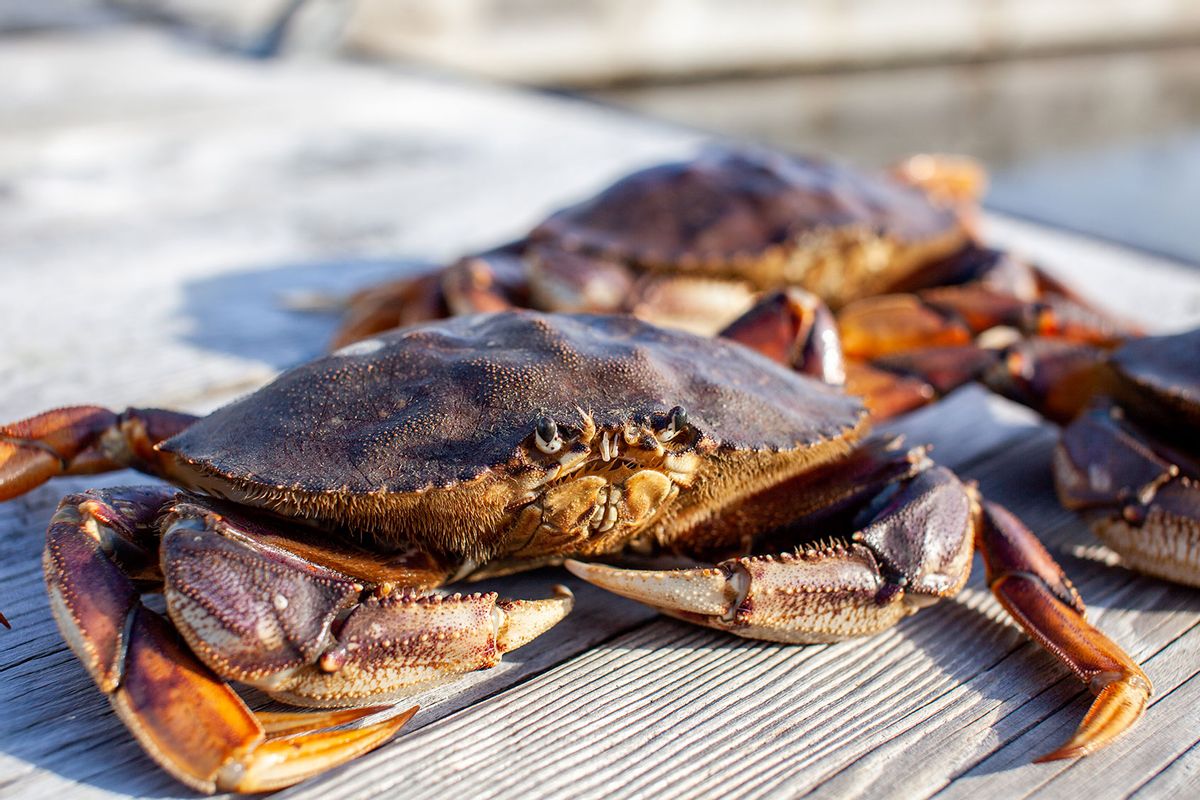Climate change is making crabs lose their sense of smell — and seafood may never be the same

Why are crab fisheries at risk for collapse? Just follow your nose — or rather, theirs.
Crabs use their sense of smell like humans use their eyes and intuition. When young crabs are seeking shelter from predators, they use their sense of smell to eke out a good hiding place. A crab’s sense of smell is vital for its ability to find food. Once that crab reaches a mature age and is ready to mate, it will use its sense of smell to find attractive partners. Should its sense of smell ever be diminished, the crab’s ability to survive will deteriorate accordingly.
“The west coast Dungeness crab fishery is worth about 250 million dollars annually.”
Unfortunately that is the plight being inflicted upon crabs due to climate change, according to a recent study published in the scientific journal Global Change Biology. Salon spoke with corresponding author Cosima Porteus, an Assistant Professor at the University of Toronto Scarborough. As Porteus explained via email, their study proves for the first time that as the ocean becomes more acidic due to climate change, crabs lose part of their sense of smell because the neurons responsible for sensing odors shrink and they have fewer receptors in their version of a nose (an organ called their antennules). Perhaps because their smelling organs are weaker, they do not flick them as often and their neurons are not as responsive to food.
The scientists learned this about crabs by picking up 35 healthy specimens (“healthy” here meaning “active, no missing limbs, no damage to carapace”) at their local grocery store, Nations Experience. Since the crabs in that store had been picked up in the wild (to be specific, off the coast of British Columbia), scientists could keep them in conditions necessary to best assess various aspects of their bodies. Various experiments were conducted on these crabs to learn about their anatomies in a world where the oceans have become more acidic.
Through these experiments, they showed “that their sense of smell is getting worse (by about half) by simply being in seawater with higher than normal carbon dioxide for 10 days,” Porteus concluded. “We have more work to do on why this is happening but it’s an important first step.”
Even those who don’t consume crab (or feel compassion for them) should be concerned about the implications. Human beings who love seafood are already suffering as a result of poor environmental regulation; this discovery about crabs’ sense of smell has ominous implications for our dinner tables, and also for the larger economy.
Want more health and science stories in your inbox? Subscribe to Salon’s weekly newsletter The Vulgar Scientist.
“Ocean acidification is another stressful thing they have to deal with on top of other ones such as higher temperatures, pollution, noise or lower oxygen.”
“The west coast Dungeness crab fishery is worth about 250 million dollars annually — therefore they are a source of income for many people and a source of food for others,” Porteus explained. “We know from crashing salmon fisheries how devastating this can be for people to lose their livelihoods.”
In addition, crabs’ sense of smell is so similar to that of other aquatic animals that there are obvious broader implications.
“Our findings can be a warning that this can or is already happening to other economically important crab species (e.g. the Alaskan red king crab or Bering sea snow crab),” Porteus pointed out. “These species have seen huge loses due to a marine heat wave with their fisheries being closed for the last 2 years. Ocean acidification might slow down their population recovery, partly due to the effects on their sense of smell.”
As for the Dungeness crabs, their declining sense of smell is just one more problem on top of a larger, unending pile.
“Ocean acidification is another stressful thing they have to deal with on top of other ones such as higher temperatures, pollution, noise or lower oxygen,” Porteus wrote. “The worst case scenario is that Dungeness crabs will have energy for producing offspring (so fewer or lower quality eggs) which ultimately leads to their population numbers going down.”
There are many recent examples of how poor environmental practices are hitting seafood consumers where it hurts. A study released in January revealed that eating just a single serving of freshwater fish is like drinking a month’s worth of water laced with PFOS (perfluorooctane sulfonic acid) at unhealthily high levels. Plastic pollution is entering the food that humans acquire from the ocean and, from there, our bodies. On a macroeconomic level, fish fraud — or the substitution of the ostensible fish sold to a customer with an unknown alternative — is so prevalent that “seafood fraud can happen anywhere both geographically and in the supply chain,” Beth Lowell, deputy vice president for US campaigns for a 501(c)(3) nonprofit ocean conservation group Oceana, told Salon by email in 2021. She later added, “Oceana found that nearly one out of every three fish tested in the United States — in grocery stores and restaurants alike — were mislabeled.”
Read more
about seafood and the environment

